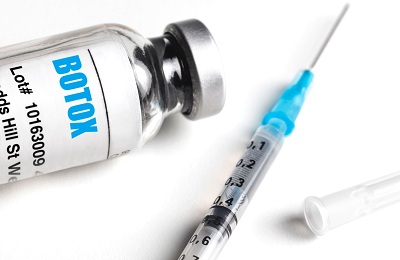High Doses Of Botox Injections May Lead To Bone Loss According To New York University Study
Source: Botox Injections Sep 17, 2020 5 years, 4 months, 2 weeks, 2 days, 8 hours, 32 minutes ago
Botox injections of high doses might lead to bone loss according to researchers from New York University.

Typically botox injections to manage jaw and facial pain do not result in clinically significant changes in jaw bone when used short term and in low doses, according to researchers at NYU College of Dentistry. However, they found evidence of bone loss when higher doses were used.
Their research findings were published in the
Journal of Oral Health Rehabilitation.
https://onlinelibrary.wiley.com/doi/abs/10.1111/joor.13087
The study team calls for further clinical studies to track bone- and muscle-related changes with long-term use of Botox for TMJD, or temporomandibular muscle and joint disorders.
Also as Botox is frequently used in aesthetic procedures and sometimes misused by certain dermatologists, studies are also warranted on bone loss in certain facial areas.
Temporomandibular muscle and joint disorders or TMJDs are a group of common pain conditions that occur in the jaw joint and surrounding muscles, with the most common type involving the muscles responsible for chewing.
Although many individuals manage their TMJD symptoms with conservative treatments such as jaw exercises, oral appliances, dietary changes, and pain medication, some do not respond to these treatments.
Botulinum toxin or botox is an FDA-approved injectable drug known for its wrinkle-reducing capabilities, is approved to treat certain muscle and pain disorders, including migraines.
Botox works in part by temporarily paralyzing or weakening muscles.
Currently in the U.S., a Phase 3 clinical trial is underway to study the use of Botox to treat TMJD, but in the meantime, it is increasingly being used off-label.
Small studies using Botox to treat TMJD in humans have had mixed results so far. In animal studies, Botox injections in jaw muscles have led to major bone loss in the jaw.
Although this is thought to be due to the muscles not being used to exert force needed for bone remodeling, Botox may also have a direct effect on bone resorption, the process of breaking down bone tissue.
Dr Karen Raphael, Study Lead Author and Professor, Department of Oral and Maxillofacial Pathology, Radiology and Medicine, College of Dentistry, New York University commented, “As a result of these concerning findings from animal studies, and the limited findings from clinical studies, more research on the safety of Botox for jaw muscles and bones is critically important."
The study included 79 women with TMJD affecting their facial muscles: 35 of whom received Botox injections (between two and five rounds in the past year) and 44 who were not treated with Botox but may have used other TMJD treatments. Using specialized CT scans, the researchers measured participants' jaw bone density and volume.
The study found that jaw bone density and volume were similar between women who had Botox injections to treat their TMJD and those who did not.
Although most study participants were given rela
tively low doses of Botox ie smaller than in most clinical trials for TMJD, individuals who received higher doses of Botox were more likely to have lower bone density.
Dr Raphael and her colleagues recommend that more human studies be conducted to better understand the impact of the long-term use of Botox on jaw muscles and bones and whether it just reduces muscle force on bone or also plays a direct role in altering bone resorption.
Dr Raphael added, "Should Botox receive regulatory approval for the treatment of TMJD, we would recommend that a phase IV study be done using low-radiation CT and MRI to track bone- and muscle-related changes with Botox use, examining both dose and long-term use. Unless specialized imaging of muscle and bone are conducted among patients who receive Botox treatment over long periods, true cumulative effects will remain unknown."
For more on
Botox Injections, keep on logging to Thailand Medical News.
